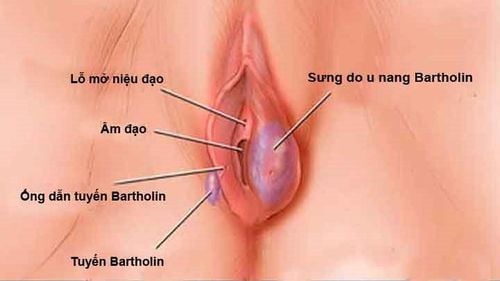This is an automatically translated article.
The article is professionally consulted by MSc Vo Thien Ngon - Urologist, Department of General Surgery, Vinmec Danang International General Hospital.
Erectile dysfunction is a common disease in men, although it is not too complicated, it requires the treating doctor to find out the exact cause so that he can choose the right treatment.
1. What is Erectile Dysfunction?
Erectile dysfunction (ED) is a male's inability to have sex consistently and continuously.A man's body needs a lot of different parts working together - from the brain and glands that control hormones to the vascular system and penis - to achieve and maintain an erection when it comes to sex. system. Therefore, erectile dysfunction can be caused by a variety of factors, including physical, mental, and emotional factors.
Physical causes of erectile dysfunction include underlying conditions such as heart disease, diabetes, high blood pressure and obesity. Injury to the genitals, damage to blood vessels and nerves can also lead to problems with an erection. Lack of exercise, alcohol consumption and smoking are common causes affecting men's sex lives.
Mentally and emotionally, feelings of anxiety, stress can all be the cause of illness. Problems in romantic relationships are also a factor in male erectile dysfunction.
In order to determine the exact cause of the disease, during the examination and diagnosis, the doctor not only considers the clinical aspect, but also asks about the medical history and recommends performing some necessary tests to be able to Find out the best treatment for the patient.
2. Exploiting medical history

2.1. Sexual history Doctors often refer to many different aspects of sexual function to find out the nature of symptoms. Accordingly, symptoms of erectile dysfunction can be confused with other conditions related to ejaculation, or problems with sexual performance. The doctor needs to know if the patient is still able to get an erection at night or early in the morning. This is quite important, considering the ability of men to achieve an erection under different circumstances (or with different sexual partners).
Besides assessing erectile function, the doctor also needs to explore other aspects. For example, the patient may have to answer specific questions about sex drive, ejaculation status, orgasm level, and pain during sex. How does the disease affect your sex life? Does this happen often? Has the patient had sex with only one sexual partner or more?
All of these questions will speak to the patient's current condition as well as the patient's expectations for treatment.
2.2. Determining the physical or psychological cause During the physical examination, the physician needs to distinguish between patients with erectile dysfunction due to physical and or mainly psychological causes. Taking the history can help identify these causes.
For example, if there is a physical cause, symptoms often come on gradually, affecting the ability to have an erection even without intercourse. In contrast, primarily psychological erectile dysfunction symptoms often have a sudden onset and are often temporary, depending on the situation. The patient can still have an erection of the penis without intercourse, such as an erection in the morning.
2.3. Medical history In addition to a history of sexual problems, it is important to take a history of medical problems. Most patients with erectile dysfunction have several risk factors for erectile dysfunction. The most important cause is cardiovascular disease, so your doctor will need to look for signs of vascular disease (such as hypertension, cerebrovascular disease, and peripheral vascular disease). Similarly, doctors also screen for other risk factors, such as diabetes, dyslipidemia, neurological diseases, endocrine disorders, and unhealthy habits, such as alcoholism and smoking.
In addition, the side effects of other drugs and disease therapies can also cause problems with erectile function, such as blood pressure medications, antidepressants, prostate surgery. prostate, radiotherapy. Elderly people and kidney failure are also the most commonly affected groups.
3. Exploiting physical signs
The characteristics that need clinical examination are presented in the following table:4. Subclinical diagnosis
4.1. Blood and urine tests Based on the results of the physical exam and sexual history, the doctor may order additional blood or urine tests to check for possible conditions such as:Diabetes; Heart-related diseaes; Kidney disease; Hormonal problems, such as low testosterone; Check thyroid function.

For this test, you will have a device placed around your penis before you go to bed. This device is responsible for measuring the number and level of erections during sleep. If the results show that the patient is able to get an erection while sleeping, it is more likely that erectile dysfunction is caused by a psychological or emotional cause.
4.3. Test to stimulate erection (intracavernosal test) The doctor injects a drug into the cavernous body of the penis to stimulate the patient's ability to have an erection. If the penis is still unable to get an erection, then the patient is having problems with blood circulation to the penis.
4.4. Doppler ultrasound Doppler ultrasound is another way to check blood flow to the penis through images transmitted from sound waves. This test can be done in conjunction with an intracavernosal test.
Based on test results, clinical examination and medical history, the doctor will choose the right treatment method for the patient. Treatment options for erectile dysfunction include: lifestyle changes, pelvic floor exercises, psychological treatment, medication or surgery.
Please dial HOTLINE for more information or register for an appointment HERE. Download MyVinmec app to make appointments faster and to manage your bookings easily.
Reference source: webmd.com













